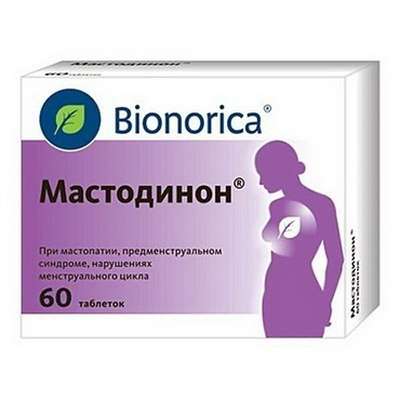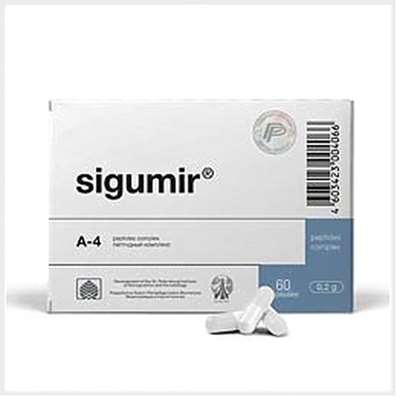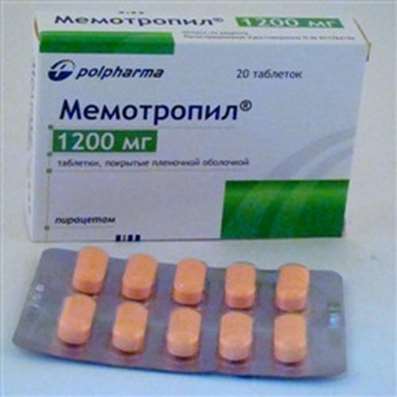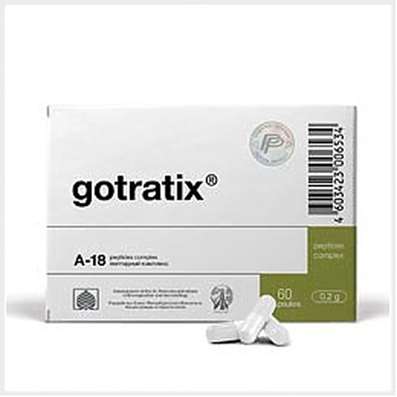Instruction for use: Aphobazolum
I want this, give me price
Dosage form: substace-powder; tablets
Active substance: Fabomotizole*
ATX
N05BX Other anxiolytics
Pharmacological group:
Anxiolytic agent (tranquilizer) [Anxiolytics]
The nosological classification (ICD-10)
F10.3 Abstinence: Alcohol withdrawal syndrome; Abstinence syndrome; Abstinence syndrome with alcoholism; Abstinence; Alcohol abstinence; Alcohol abstinence; Alcohol withdrawal status; Alcohol withdrawal syndrome; Postabstinctive disorder; Post-abstinence condition; Hangover syndrome; Abstinence syndrome; Alcohol abstinence syndrome; Alcohol withdrawal syndrome; Abstinence condition
F17.3 Abstinence due to tobacco use: Nicotinic abstinence; syndrome with smoking cessation
F41.1 Generalized anxiety disorder: Generalized anxiety disorders; Generalized alarm; Phobic neurosis; Anxiety reaction; Anxious neurosis
F41.9 Anxiety disorder, unspecified: Neurotic disorders with anxiety syndrome; Severe anxiety; Neuro-like symptomatology; Neuro-like disorders; Neuro-like conditions; Neuroses with anxiety symptoms; Neuroses with a sense of anxiety; Acute situational and stress anxiety; Acute attack of anxiety; Severe Anxiety; Situational Anxiety Disorder; State of anxiety; Anxious and delusional component; Alarming state; Anxiety; Anxiety Disorders; Anxiety syndrome; Sense of anxiety; Alarm conditions; Chronic neurotic anxiety; Susto; Psychopathy with a predominance of anxiety and anxiety; Anxiety disorders in neurotic and neurosis-like states; Anxious neuroses; Anxious and delusional state; Acute situational stress alarm; Depressed mood with elements of anxiety
F43 Reaction to severe stress and adaptation disorders: Stressful condition; Stress disorders; Adaptation disorder
F45.9 Somatoform disorder, unspecified
F48.0 Neurasthenia: Asthenic form of neurasthenia; Asthenoneurotic disorder; Astheno-neurotic state; Flu of young workaholics; Influenza yuppie; Neurasthenic disorders; Neurasthenic conditions; Neurasthenic syndrome
G47.8 Other sleep disorders: Slight sleep disorders; Klein-Levine Syndrome
G90 Disorders of autonomic [autonomous] nervous system: angiodystonia; vasovegetative manifestations; vasomotor dystonia; vegetative dystonia; autonomic dysfunction; vegetative lability; Vegetative-vascular disorders; autonomic dysfunction; vasoneurosis; Vegetative-vascular dystonia; vegetative-vascular disorders; Vegetative-vascular disorders; Dystonia vegetovascular; Dystonia neurocirculatory; neuro disorder; Cardiopsychoneurosis; Neurocirculatory dystonia of hypertensive type; Primary neurovegetative syndrome; The syndrome of vegetative dystonia
N94.3 Premenstrual tension syndrome: Pronounced premenstrual syndrome; Menstrual psychosomatic disorder; Menstrual syndrome; Premenstrual tension; Premenstrual status; Premenstrual period; Premenstrual syndrome; Menstruation syndrome
Z60.0 Problems associated with adaptation to lifestyle changes: Adaptation; Correction of a daily biorhythm; Impaired adaptation; Adaptation disorders; Normalization of biological rhythms; Adaptation disorders; Adaptation disorder
Composition
Tablets - 1 table.
active substance:
fabomotisol (phabomotisol dihydrochloride) 5 mg; 10 mg
auxiliary substances: potato starch - 48/48 mg; MCC - 40/35 mg; lactose monohydrate - 48.5 / 48.5 mg; povidone medium molecular weight (polyvinylpyrrolidone, medium molecular weight, kollidon 25) - 7/7 mg; magnesium stearate 1.5 / 1.5 mg
Description of dosage form
Tablets: white or white with a creamy shade of color, flat-cylindrical, with a bevel.
Pharmachologic effect
Mode of action - anxiolytic.
Pharmacodynamics
Afobazol® is a selective non-benzodiazepine anxiolytic. Acting on σ1-receptors in nerve cells of the brain, Afobazol® stabilizes GABA / benzodiazepine receptors and restores their sensitivity to endogenous mediators of inhibition. Afobazol® also increases the bioenergetic potential of neurons and has a neuroprotective effect: restores and protects nerve cells.
The effect of the drug is realized primarily as a combination of anxiolytic (anti-anxiety) and light stimulating (activating) effects. Afobazol® reduces or eliminates feelings of anxiety (anxiety, bad forebodings, fears), irritability, tension (fearfulness, tearfulness, anxiety, inability to relax, insomnia, fear), depressive mood, somatic manifestations of anxiety (muscular, sensory, cardiovascular, Respiratory, gastrointestinal symptoms), vegetative disorders (dry mouth, sweating, dizziness), cognitive disorders (difficulty concentrating, weakened memory), including those that arise When stress disorders (disorders of adaptation). Particularly shown is the use of the drug in individuals with predominantly asthenic personality traits in the form of anxious suspicion, uncertainty, increased vulnerability and emotional lability, a tendency to emotional-stressful reactions.
The effect of the drug develops on the 5th-7th day of treatment. The maximum effect is achieved by the end of the 4th week of treatment and remains after the end of treatment on average 1-2 weeks. Afobazol® does not cause muscle weakness, drowsiness and does not have a negative effect on concentration of attention and memory. When it is used, addiction, drug dependence is not formed and the withdrawal syndrome does not develop.
Pharmacokinetics
Suction
After oral administration Afobazol® is absorbed well and quickly from the digestive tract. Cmax in plasma - (0,13 ± 0,073) mkg / ml; Tmax - (0.85 ± 0.13) h.
Distribution
Afobazol® is intensively distributed over well-vascularized organs, it is characterized by rapid transfer from the central pool (blood plasma) to the peripheral (highly vascularized organs and tissues).
Metabolism
Afobazol® is subjected to the effect of the first passage through the liver, the main directions of metabolism are hydroxylation on the aromatic ring of the benzimidazole ring and oxidation by the morpholino fragment.
Excretion
T1 / 2 of the preparation Afobazol® for oral administration is (0.82 ± 0.54) h. Short T1 / 2 is caused by intensive biotransformation of the drug and rapid distribution from the blood plasma to the organs and tissues. The drug is excreted mainly in the form of metabolites and partially unchanged in urine and feces.
Indications for the Afobazolum
Afobazol® is used in adults with anxiety conditions:
- generalized anxiety disorders;
- neurasthenia;
- Adaptive disorders;
In patients with various physical diseases:
- bronchial asthma;
- irritable bowel syndrome;
- systemic lupus erythematosus;
- IHD;
- hypertonic disease;
- arrhythmia;
- dermatological, oncological and other diseases.
When treating:
- sleep disorders associated with anxiety;
- Neurocircular dystonia;
- premenstrual syndrome;
- alcohol abstinence syndrome;
- to facilitate the syndrome of "cancellation" when quitting smoking.
Contraindications
Hypersensitivity to the components of the drug;
Intolerance to galactose, deficiency of lactase or glucose-galactose malabsorption.
pregnancy;
lactation period (breastfeeding);
children's age (under 18 years).
Application in pregnancy and lactation
The use of the drug Afobazol® is contraindicated in pregnancy. If you need to use the drug during lactation, breastfeeding should be discontinued.
Side effects
Allergic reactions are possible.
Rarely is a headache, which usually goes away on its own and does not require the withdrawal of the drug.
Interaction
Afobazol® does not interact with ethanol and does not affect the hypnotic effect of thiopental. Enhances the anticonvulsant effect of carbamazepine. It causes an increase in the anxiolytic effect of diazepam.
Dosing and Administration
Inside, after a meal.
The optimal single dose of the drug is 10 mg, the daily dose is 30 mg divided into 3 doses during the day. The duration of the course use of the drug is 2-4 weeks.
If necessary, on the recommendation of a doctor, the daily dose of the drug can be increased to 60 mg, and the duration of treatment up to 3 months.
Overdose
Symptoms: with a significant overdose and intoxication, it is possible to develop a sedative effect and increased drowsiness without manifestations of muscle relaxation.
Treatment: as an emergency help, inject a 20% solution of caffeine sodium benzoate 1 ml 2-3 times a day.
Special instructions
Influence on the ability to drive vehicles and manage mechanisms. The drug does not adversely affect the driving of motor vehicles and the performance of potentially hazardous activities requiring increased concentration of attention and speed of psychomotor reactions.
Release form
Tablets, 5 mg or 10 mg. In the outline of the cell, 10, 20, 25 or 30 pcs. In the polymer bank, 30, 50, 100 or 120 pcs. Each bank or 3, 5 or 10 contour packs of 10 tables, or 1, 2, 3, 4 or 6 contour packs of 20 tables, or 2 or 4 contour packs of 25 tables, or 1, 2. 3 or 4 contour packs of 30 tab. In a pack of cardboard.
Terms of leave from pharmacies
Without recipe.
Storage conditions of the drug Aphobazolum
At a temperature not higher than 25 ° C.
Keep out of the reach of children.
Shelf life of the drug Aphobazolum
3 years.
Do not use after the expiry date printed on the package.

 Cart
Cart





